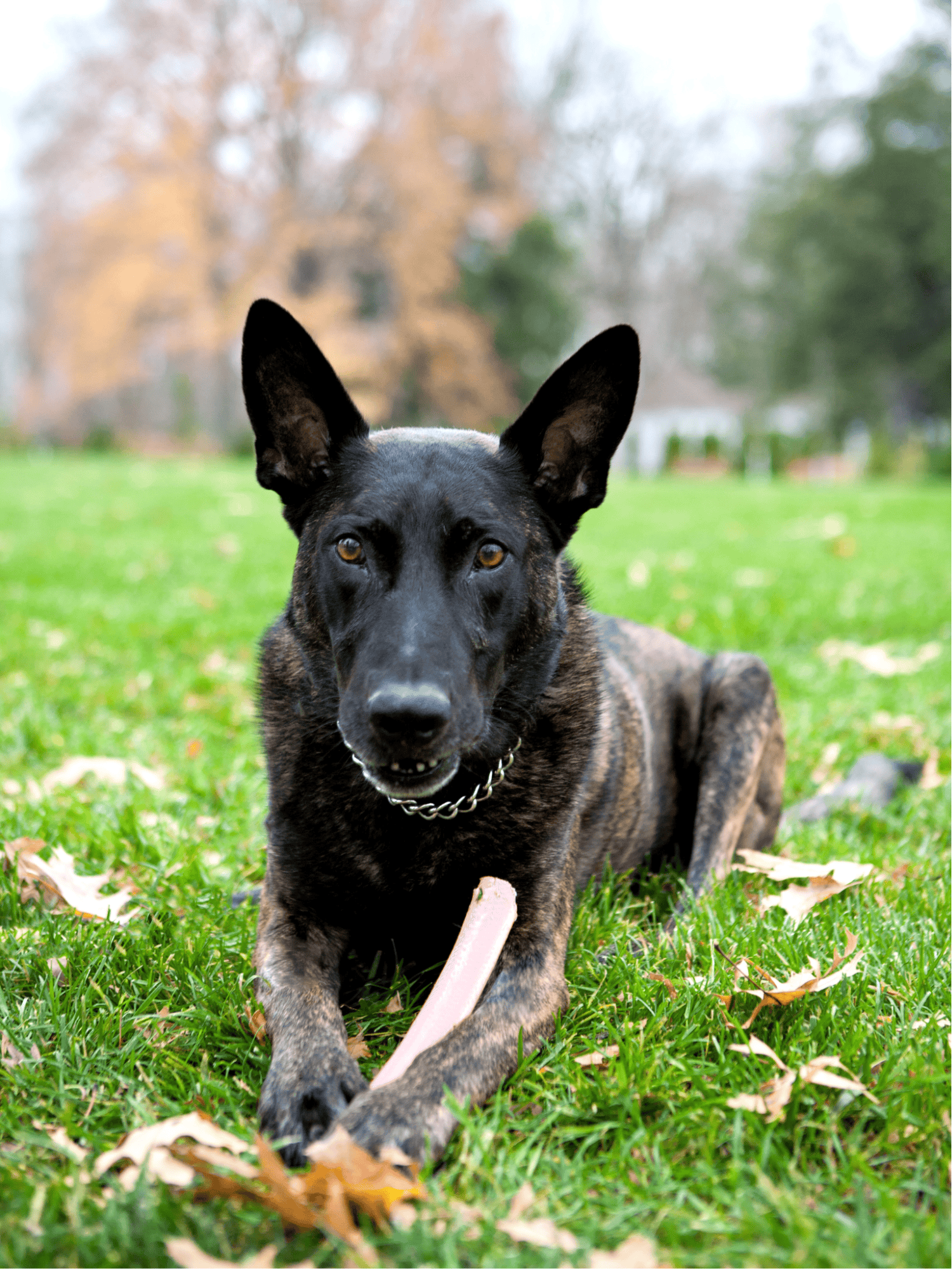
Dutch Shepherd
Shortcuts
The Dutch Shepherd, originating from the Netherlands, is a highly adaptable and intelligent working dog known for its strong work ethic and high energy. They stand out among shepherd breeds with unique characteristics and a rich herding background. These dogs are perfect for those who desire a distinctive, diligent companion.
Dutch Shepherds are versatile, thriving in various tasks and environments, making them ideal for active families and professional settings. Their agility and stamina equip them for challenging, fast-paced activities, distinguishing them from similar breeds like German Shepherds and Belgian Malinois. They embody the epitome of loyalty, spirit, and hard work.
Breed Overview

Height
22 – 25 inches
Weight
42–75 pounds
Lifespan
11 – 14 years
Colors
Gold brindle, silver brindle, yellow
Suitable for
Active individuals looking for an intelligent and hard-working dog
Temperament
Intelligent, energetic, hard-working, stubborn


Height
22 – 25 inches
Weight
42–75 pounds
Lifespan
11 – 14 years
Colors
Gold brindle, silver brindle, yellow
Suitable for
Active individuals looking for an intelligent and hard-working dog
Temperament
Intelligent, energetic, hard-working, stubborn

The Dutch Shepherd is a medium-sized herding dog known for its versatility and intelligence. This breed has a muscular, athletic build and a well-proportioned body.
Characteristics
Energy

Health

Sociability

Trainability

Lifespan


Enjoying this read?
We publish this content for free to generate interest in our Premium members' area. By subscribing, you can ask the writer any questions related to pet care and this article, get access to 100+ Premium Pet Care Guides and go Ad-Free with DogFix Premium for $2.99.
Health Conditions
The Dutch Shepherd is generally a healthy dog breed, benefiting from selective breeding practices. Routine veterinary check-ups and a well-balanced diet contribute to maintaining their overall health. Regular exercise helps prevent obesity and related issues, ensuring the Dutch Shepherd remains fit and active.
Minor Conditions
- Glaucoma
Serious Conditions
- Hip Dysplasia
- Elbow Dysplasia
- Thyroid Problems
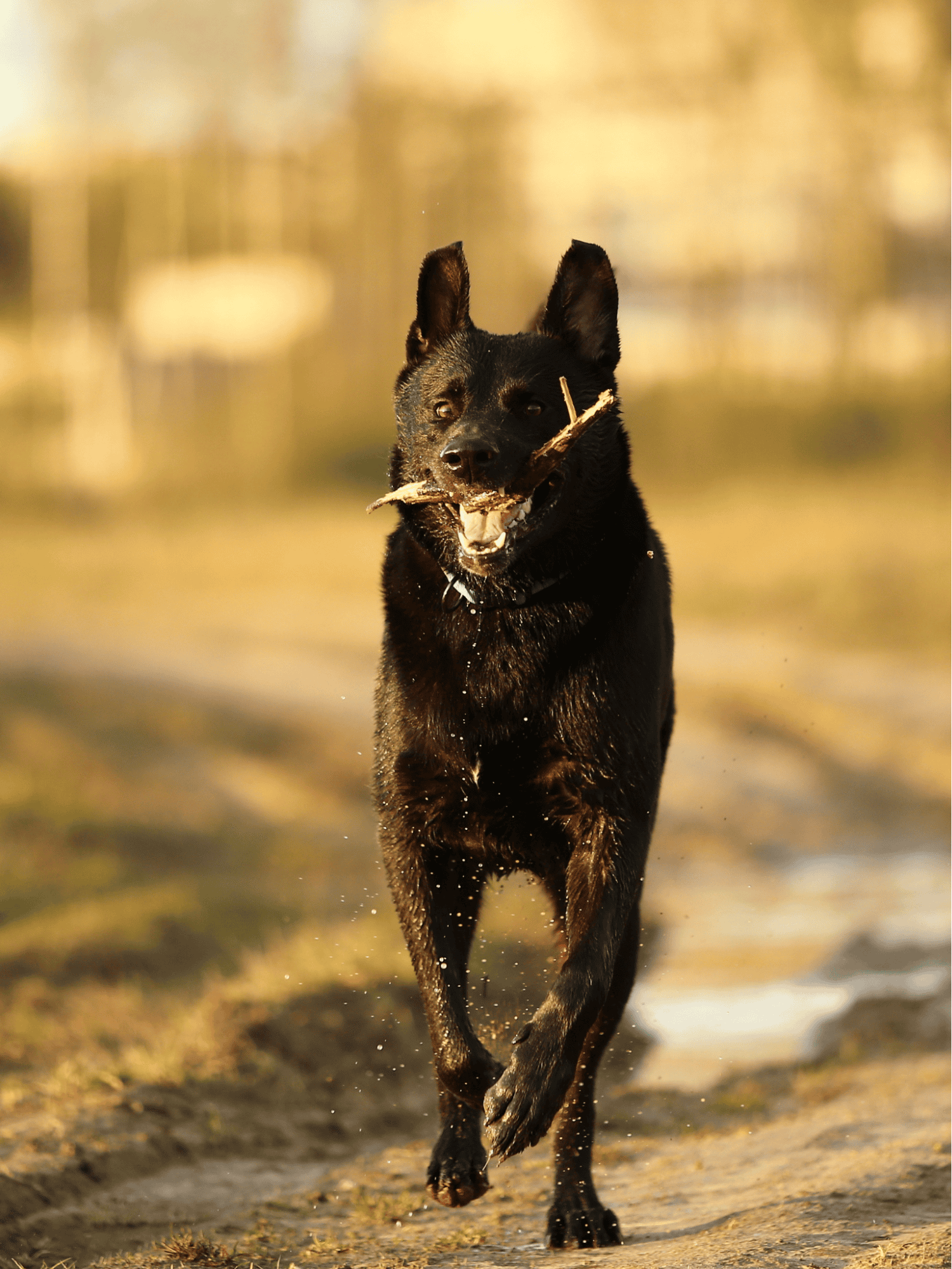
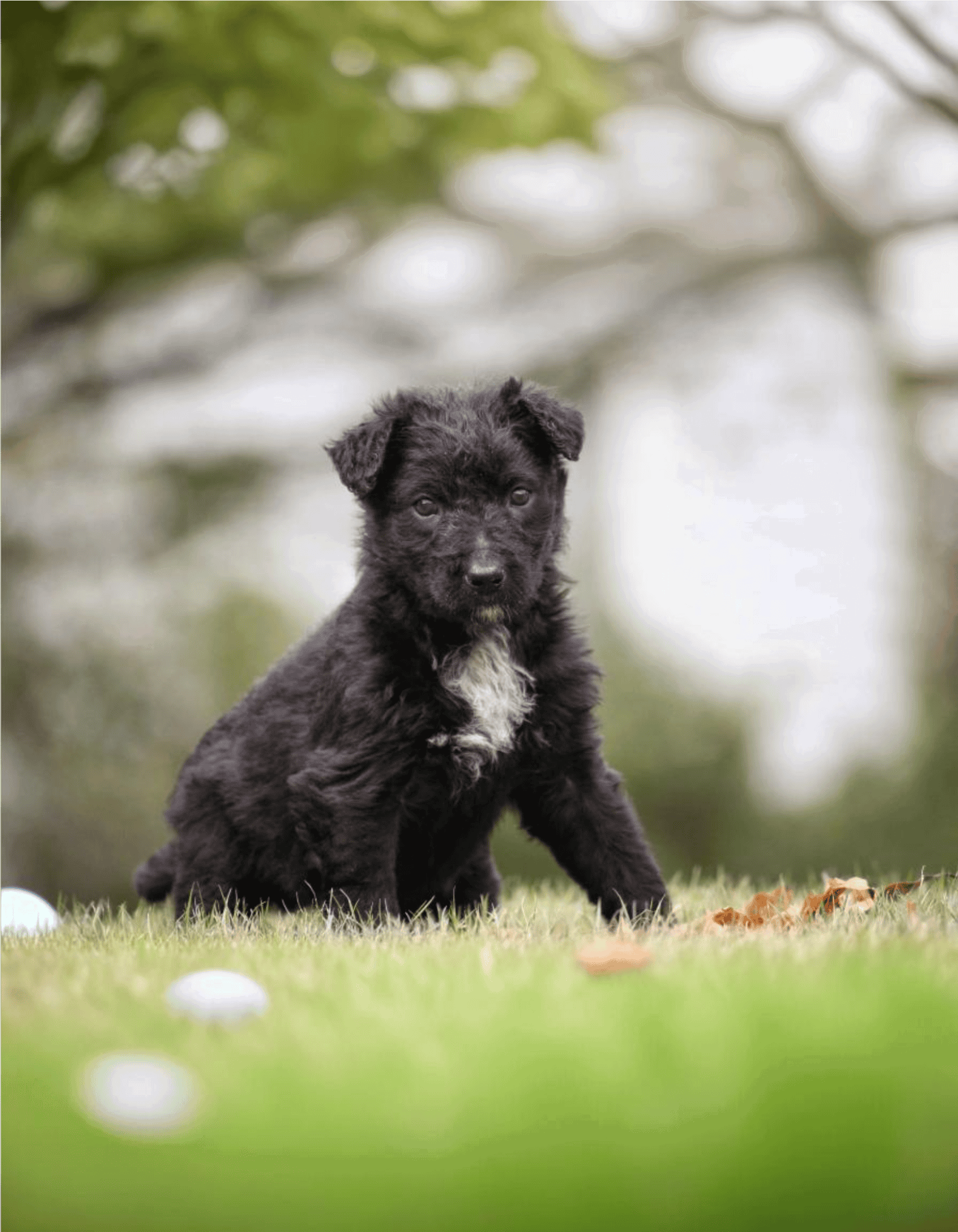
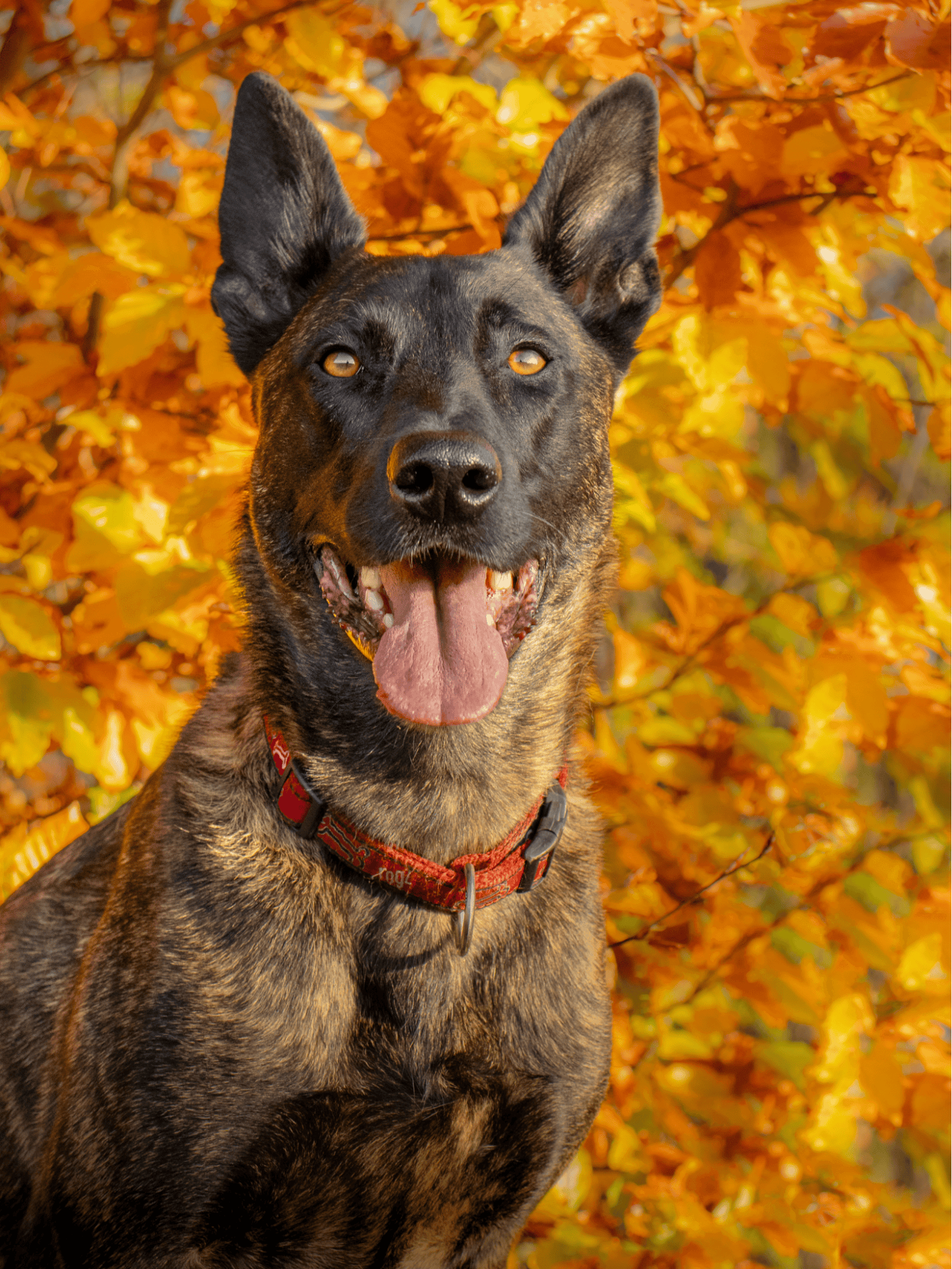
Dutch Shepherd Puppies
Locating a Dutch Shepherd puppy can be challenging, as they are not commonly found in the United States. Your best bet is to seek out reputable breeders in Europe. These puppies are rarely discovered in shelters or by chance, making the search more difficult.
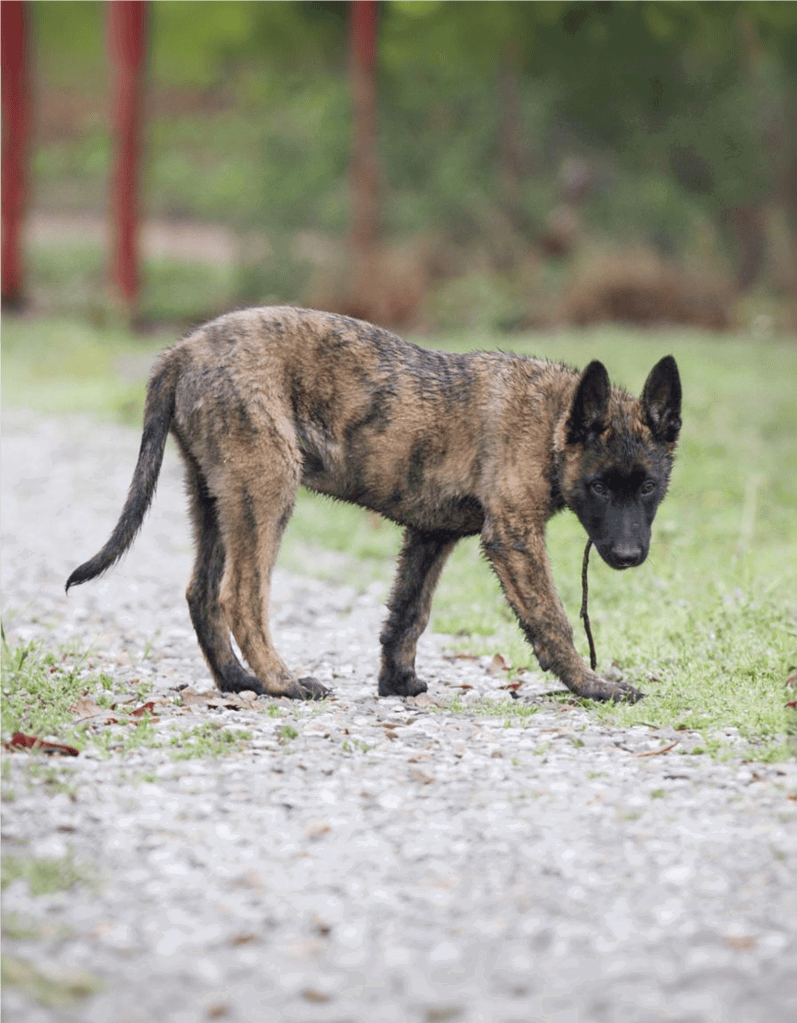
Dutch Shepherd puppies are exceptionally energetic and require consistent socialization, training, and physical activity. Early involvement in their development is vital for their success, emphasizing the need for ample physical and mental engagement to foster growth into well-balanced adults.
Temperament & Intelligence Of The Dutch Shepherd
Dutch Shepherds are renowned for their exceptional intelligence, alertness, and ability to learn and adapt to various roles quickly. Thanks to their versatility, they require consistent exercise and mental engagement due to their high energy and historical roles as herding dogs. Their keen vigilance makes them excellent watchdogs, though their intelligence can often lead to stubbornness without patient training.
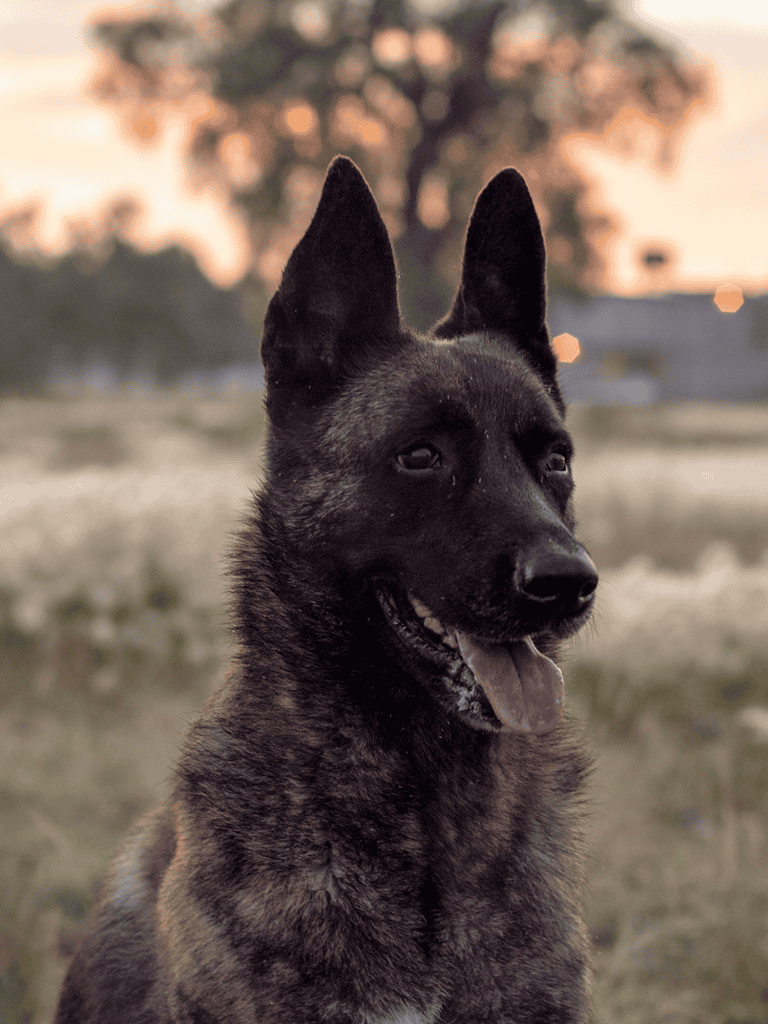
These dogs are highly protective and develop strong bonds with their families, showing affection quickly. Owners must invest time in physical and mental activities to satisfy Dutch Shepherds and maintain good behavior. Key traits include intelligence, vigilance, energy, and a stubborn streak.
Are These Dogs Good For Families?
Dutch Shepherds could excel as family pets but might not fit every home. They require significant mental and physical exercise, which could be daunting for busy families or those with toddlers. Families with more free time and older children ready to engage in play and exercise may find a Dutch Shepherd a suitable companion.
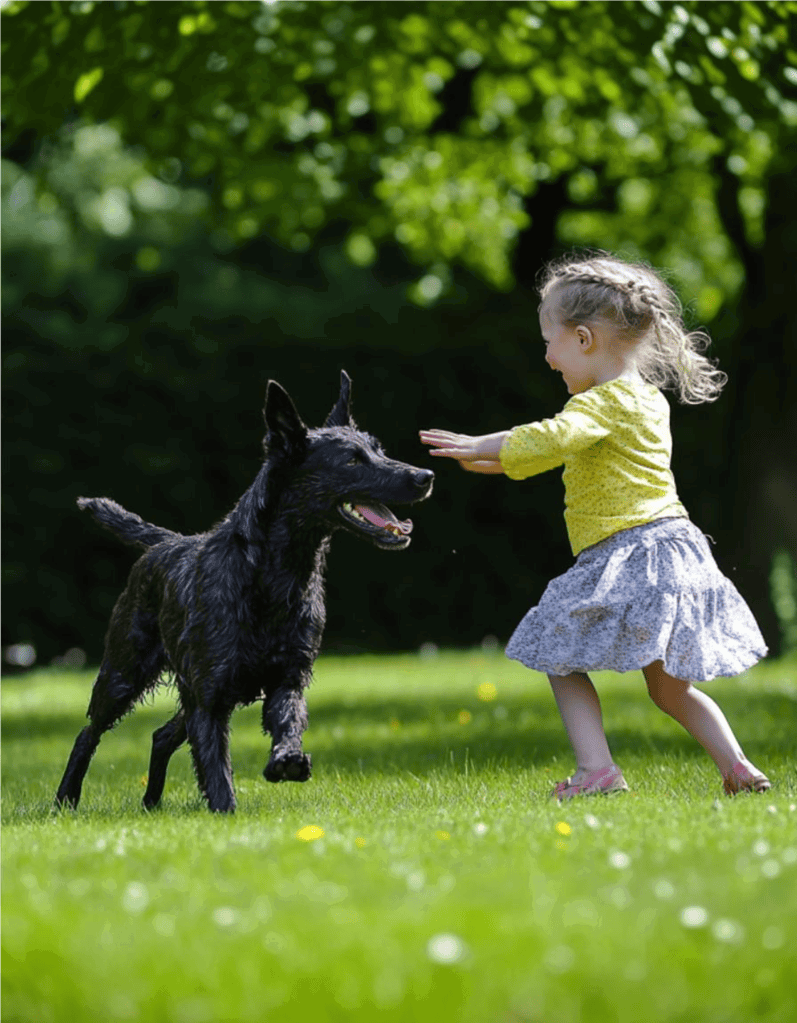
However, households unable to dedicate several hours weekly to the dog’s needs may find a Dutch Shepherd less than ideal. Their need for engagement and activity means they’re not the best match for everyone.
Does This Breed Get Along With Other Pets?
Dutch Shepherds generally interact well with other pets, with their behavior heavily influenced by individual temperaments and training. They usually enjoy the company of dogs, potentially making compatible playmates. Caution is needed with smaller pets due to their herding instincts, which can lead to chasing. With cats, coexistence is possible, though it may require time and consistent training to manage their relationship effectively.
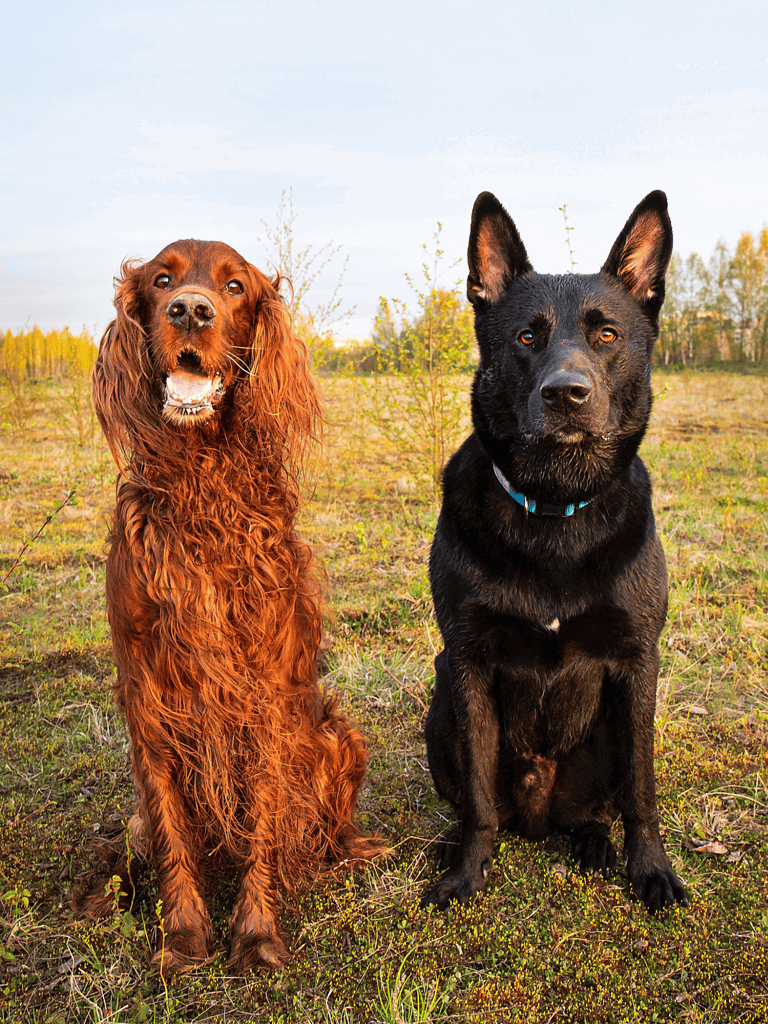
Close supervision is crucial during initial introductions to other pets, and ongoing training is essential for teaching Dutch Shepherds about boundaries and appropriate behavior around different animals. Each Dutch Shepherd’s adaptation to pets of various sizes and species may necessitate adjustment for harmonious coexistence, underscoring the importance of patience and persistence in training.
Food & Diet Requirements
Dutch Shepherds require diets that support their energy levels. Active dogs thrive on high-calorie food, while inactive dogs need a regular diet to avoid obesity. It is crucial to select age-appropriate food for puppies, adults, and seniors, ensuring it meets their specific nutritional needs.
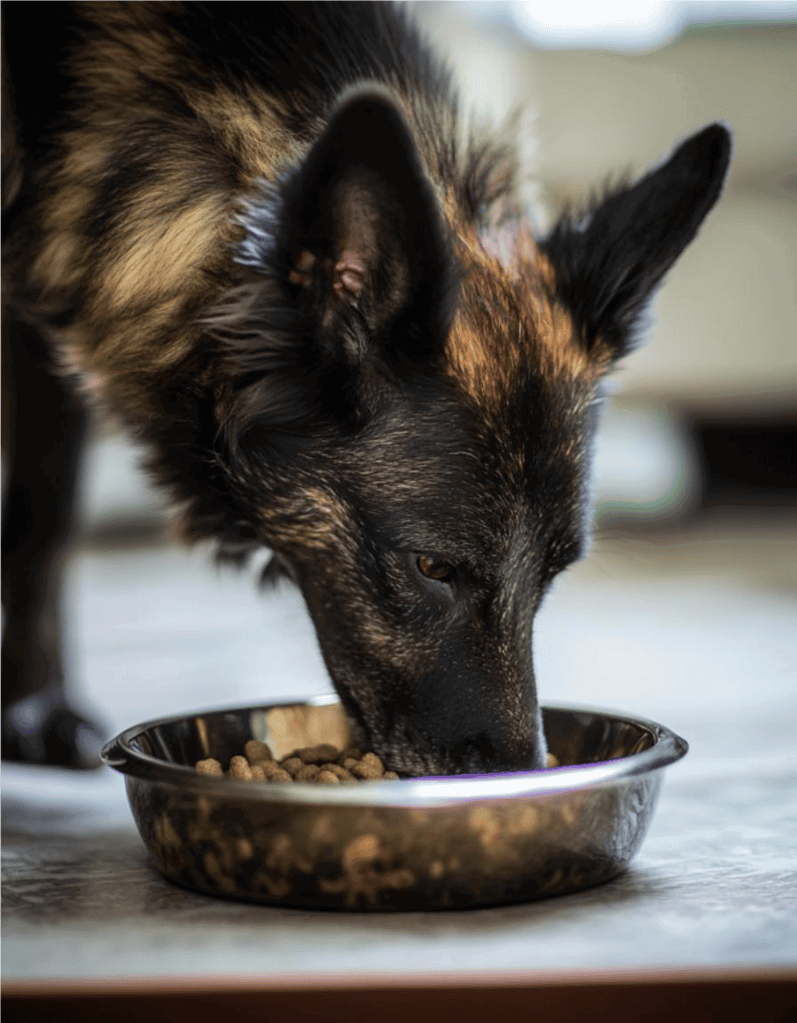
Feed puppies, adults, and seniors food according to their life stage, including puppy, adult, and senior food. Always adhere to the feeding guidelines on the packaging to prevent overfeeding. Regular weight checks are advisable to adjust food portions for optimal health and weight maintenance.
Exercise
Dutch Shepherds require lots of daily exercise, including long walks twice daily, to maintain their health. High-energy activities like hiking, agility training, running, and backyard games keep them engaged and happy.
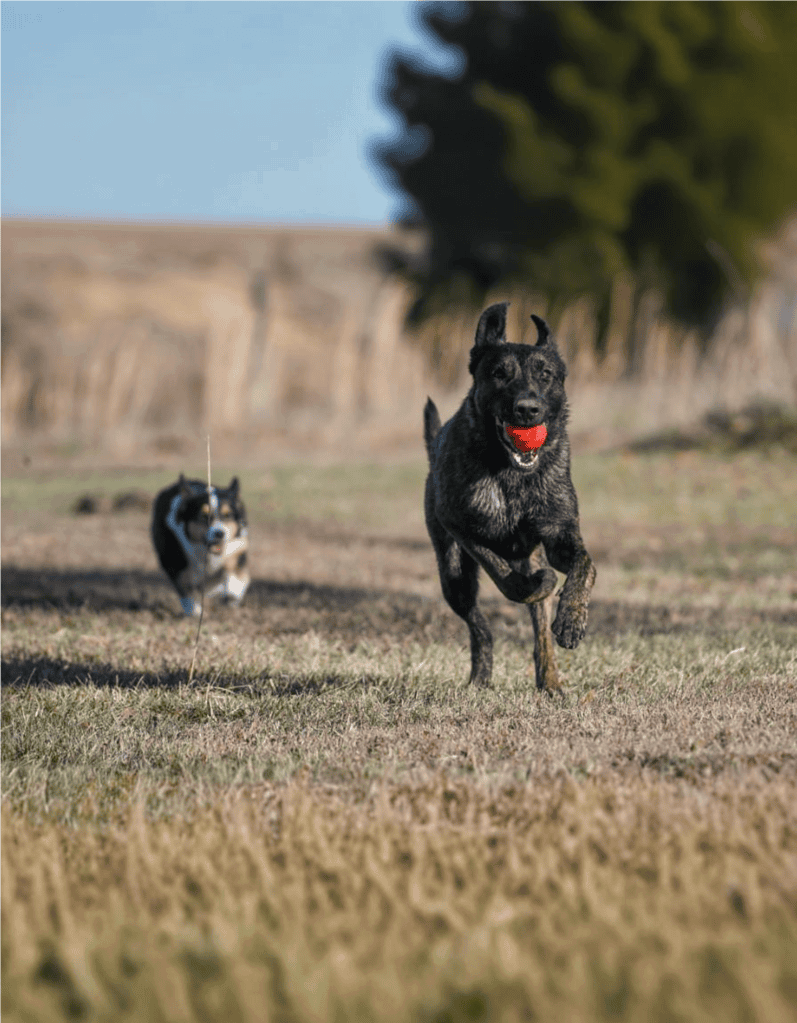
Additionally, mental stimulation through games, puzzles, and training sessions is crucial for their well-being. Without this, they may become anxious or resort to destructive behaviors. A balanced routine of physical and mental exercise prevents such issues.
Training
Dutch Shepherds are highly trainable, intelligent dogs that excel in various roles, making early and consistent training essential. Training from a young age helps them learn commands and adapt behaviors, while clear goals and persistence ensure they understand expectations. Socialization plays a crucial role in tempering their vigilant nature, with exposure to diverse environments and people enhancing their adaptability and reducing hyperactivity.
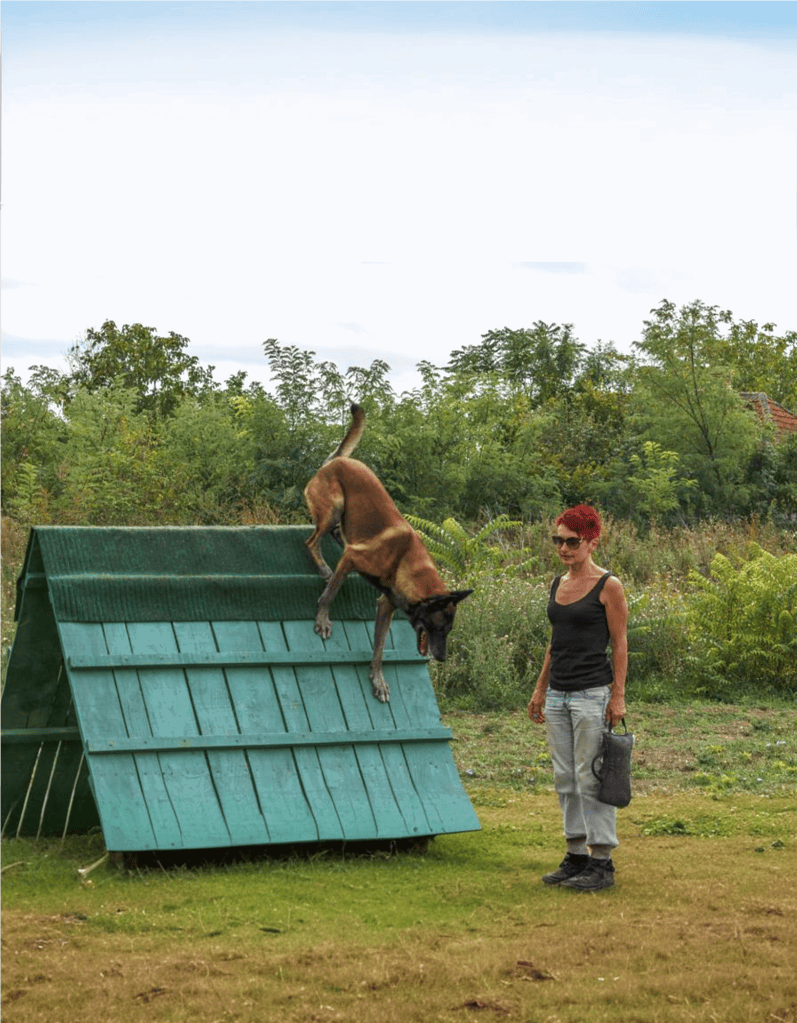
However, some may exhibit stubbornness, a sign of intelligence, demanding stronger willpower from trainers for effective guidance. Patience and creativity in training, such as engaging in tasks and introducing new environments, prevent boredom and keep them interested. With the right approach, including early training, consistency, socialization, and firm guidance, training a Dutch Shepherd can be immensely rewarding, as they can perform a wide range of tasks and make excellent companions.
Grooming
Dutch Shepherds have three distinct coat types: short, long, and rough, each with its grooming requirements. Short-coated types are low maintenance, while long-coated ones need weekly care, including brushing, bathing, and occasional trims. Rough-coated Shepherds require monthly grooming to keep their texture.
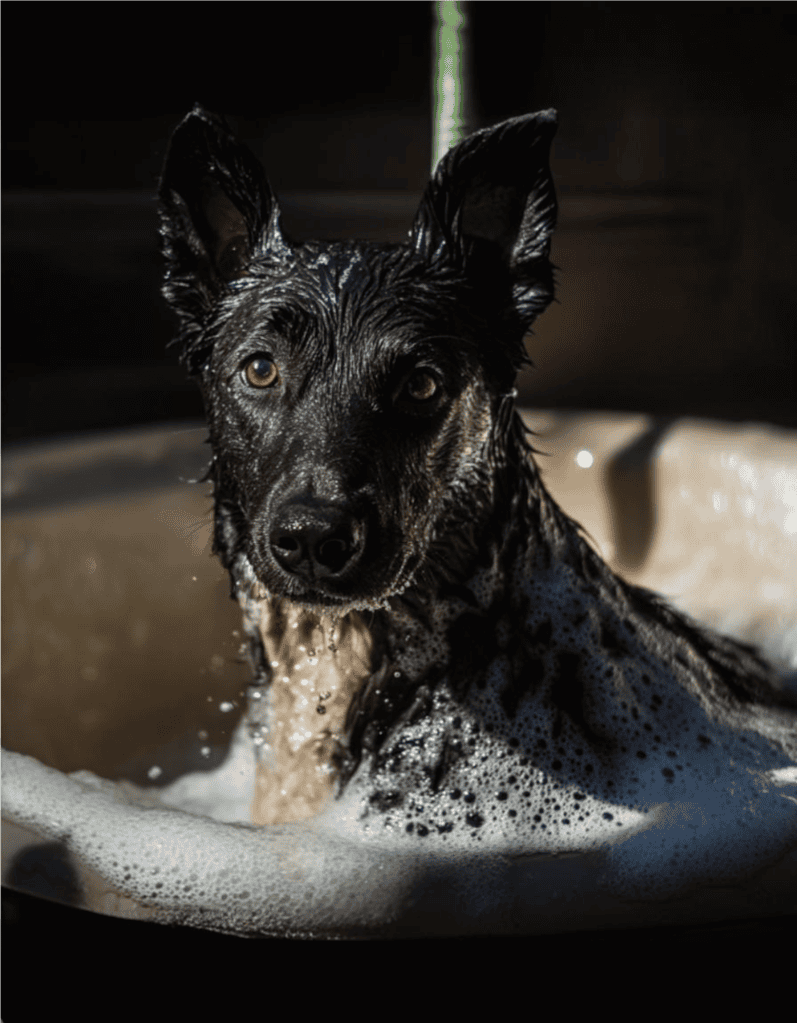
Active Dutch Shepherds benefit from regular baths to clean dirt and odors. Regardless of their coat type, they need their nails trimmed, particularly if they aren’t worn down naturally. Maintaining a Dutch Shepherd’s coat depends on its specific type: minimal brushing or more frequent grooming sessions.
Male Vs. Female
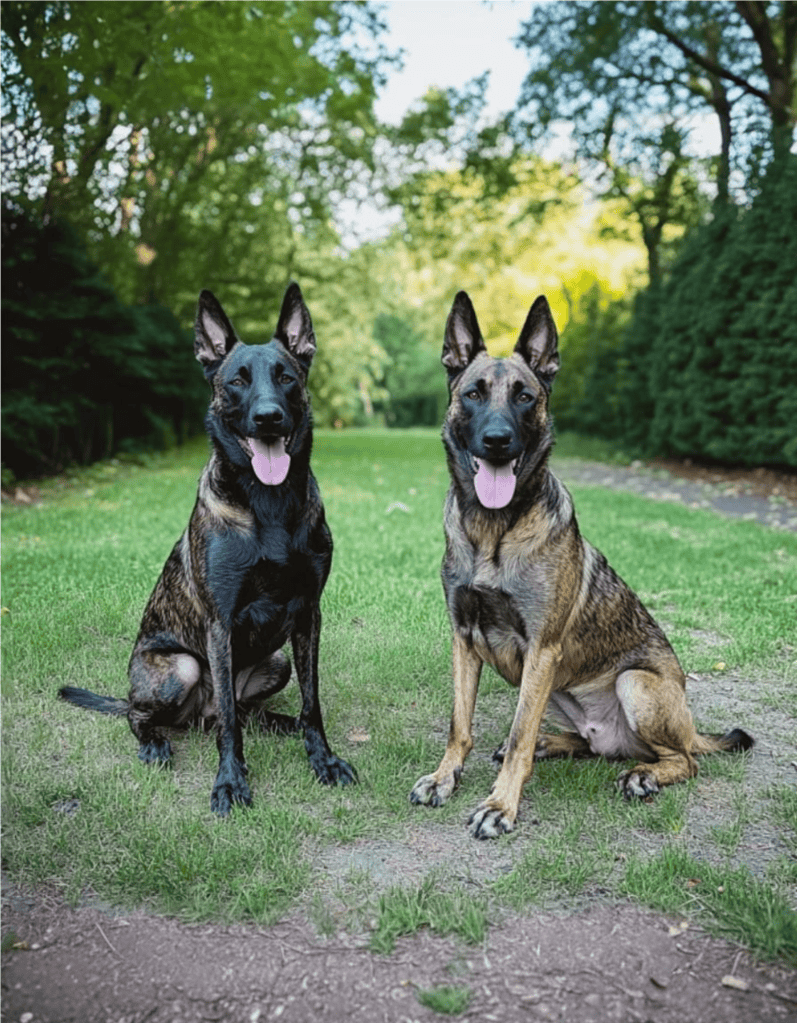
Male Dutch Shepherds are typically larger and heavier than females, who are generally leaner. Both genders have similar behavior and temperament. Spaying or neutering is beneficial as it reduces the risk of certain cancers and prevents undesirable mating behaviors and pregnancies.
Fact #1: Dutch Shepherds Are Related to Old European Wild Dogs
Dutch Shepherds have a heritage that can be traced back to ancient wild dogs of Europe. These dogs naturally emerged as herders from local wild dog populations and were initially bred to help manage local sheep herds. As a result, they exhibit both domesticated and wild traits.
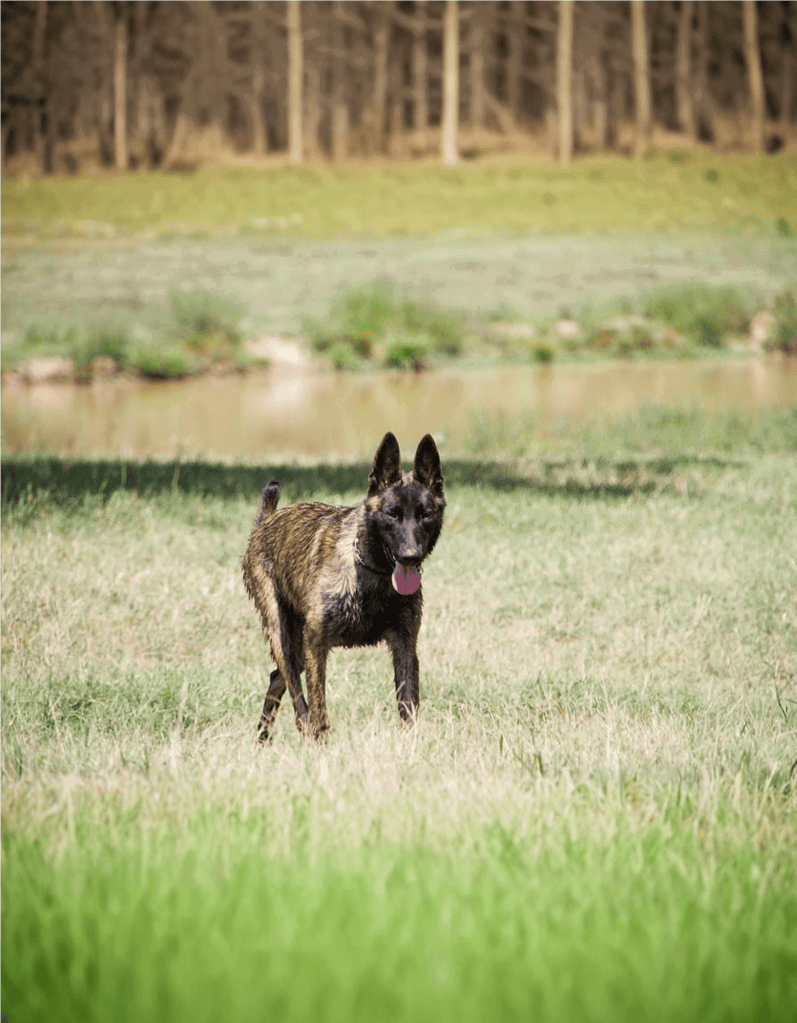
Their appearance still reflects this ancient lineage, with early observers noting their resemblance to wolves and emphasizing their connection to these old European wild dogs. Despite being a relatively newer breed, the Dutch Shepherd retains many of the physical characteristics of its wild ancestors.
Fact #2: Dutch Shepherds are a Farmer’s Best Friend
Dutch Shepherds have historically served as multipurpose farm dogs, proving invaluable to farmers. They kept hens away from vegetable patches and gathered cows for milking. Their versatility didn’t stop there; these dogs also pulled carts filled with produce to market.
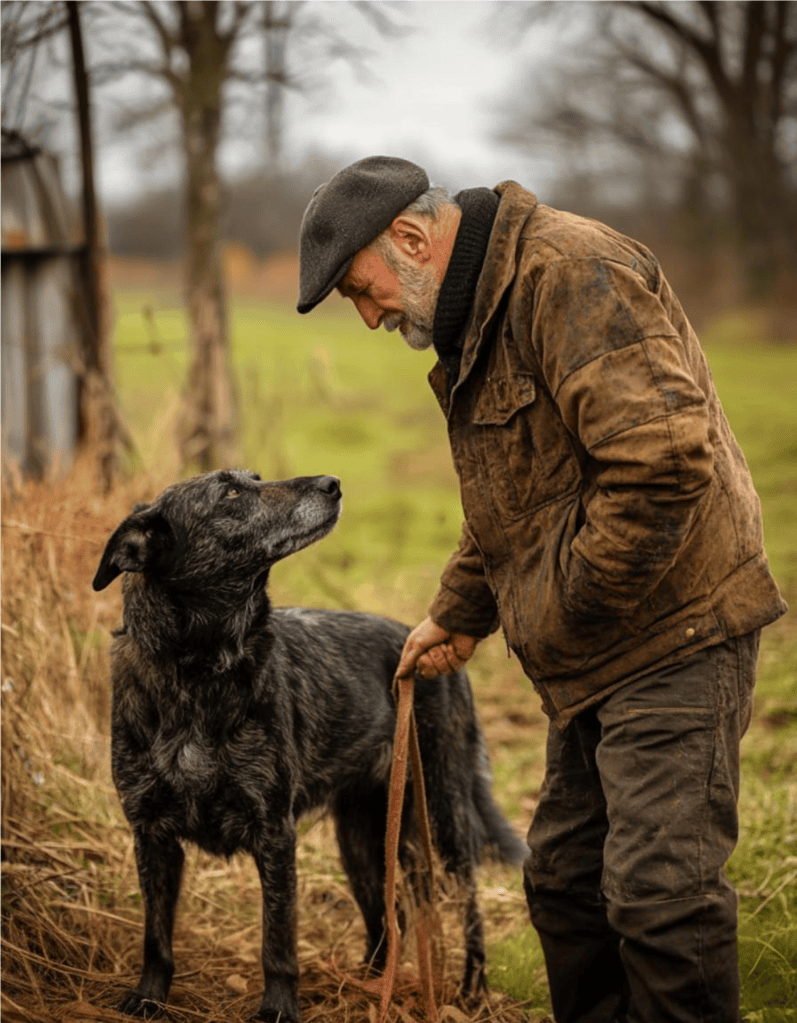
Their protective instincts ensured the safety of children and alerted farmers to strangers. Farmers appreciated their intelligence and adaptability. Their role extended beyond just herding; they served as vigilant guardians and loyal companions on the farm.
Fact #3: Dutch Shepherds Should Only Be Brindle
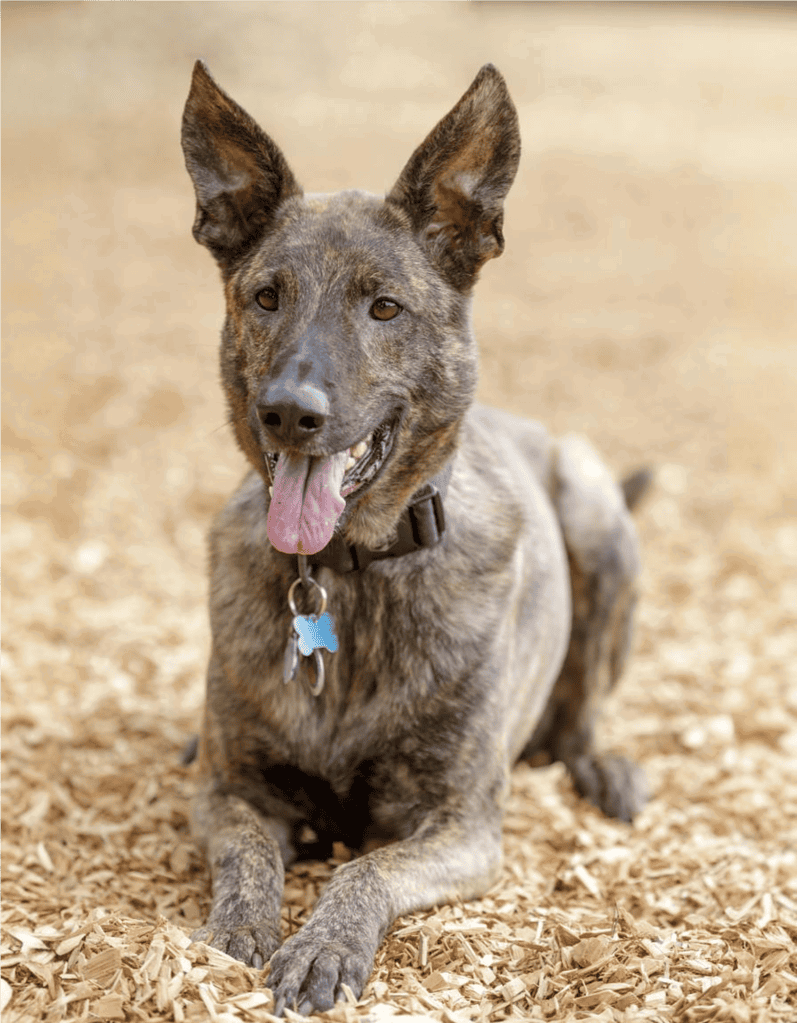
Dutch Shepherds stand out primarily because of their distinctive brindle coats, which set them apart from similar breeds like German and Belgian Shepherds. Standardized in the early 20th century, the brindle color ranges from gray to gold, adorned with darker stripes for a tiger-like pattern. This makes the Dutch Shepherd unique among herding breeds and preserves its traditional appearance.
Final Thoughts
Dutch Shepherds are recognized for their intelligence and boundless energy. This breed provides a loyal and engaging companion for families who enjoy an active lifestyle. If you are interested in dog sports or activities, Dutch Shepherds are an excellent choice. Their enthusiasm and agility make them exceptional partners in competitions.
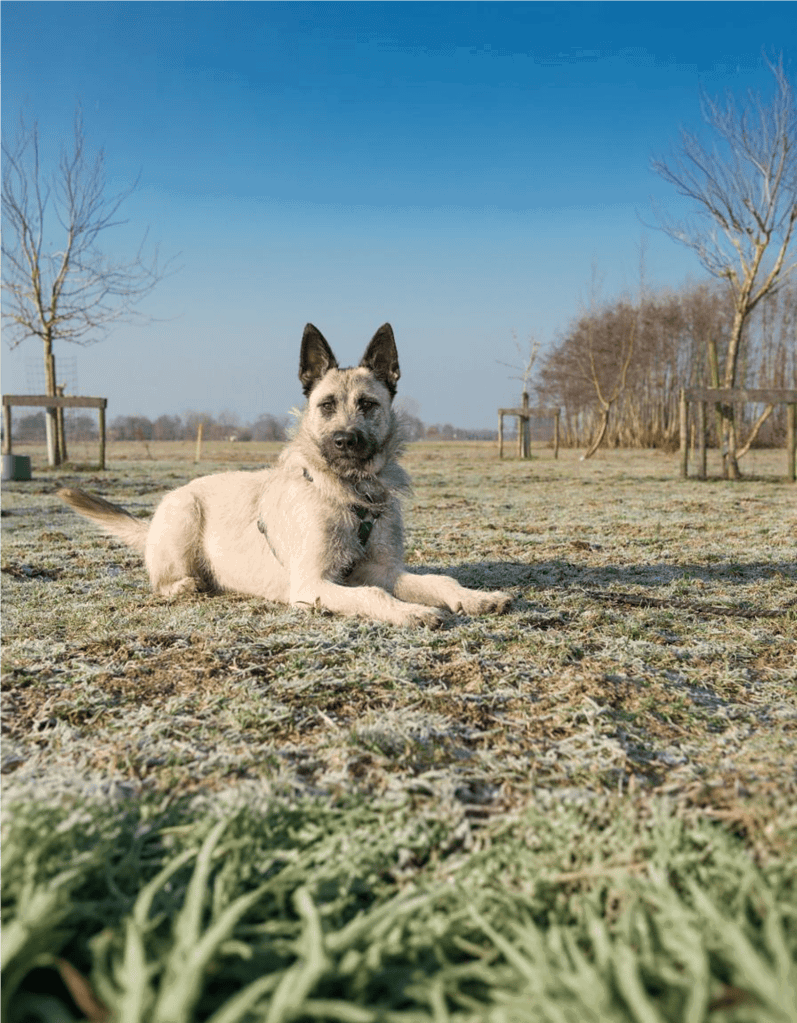
These dogs need plenty of mental and physical stimulation. Consistent training and engagement will help them stay well-behaved and focused. Dutch Shepherds can quickly adapt to various lifestyles, making them suitable companions for many people.
Frequently Asked Questions
What is the average weight range for a Dutch Shepherd?
Dutch Shepherds typically weigh between 50 to 70 pounds.
What personality traits are typically seen in Dutch Shepherds?
These dogs are known for their intelligence, loyalty, and high energy levels. They are also very protective and can be reserved with strangers.
How long do Dutch Shepherds generally live?
The average lifespan of a Dutch Shepherd is usually between 11 and 14 years.
What are the standard size dimensions of a Dutch Shepherd?
Dutch Shepherds generally stand around 21 to 25 inches tall at the shoulder.
What variety of colors do Dutch Shepherds come in?
They commonly come in colors such as brindle, including variations of gold and silver.
How often do Dutch Shepherds require grooming?
Grooming frequency depends on their coat type. They should be brushed at least once weekly to maintain their coat and reduce shedding.

Didn’t find what you need? Use the search!
Search our database of over hundreds of posts with up-to-date information from our experts and veterinarians.

